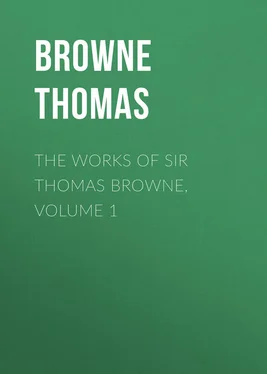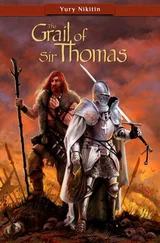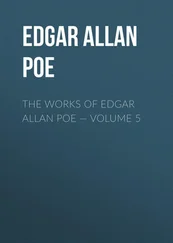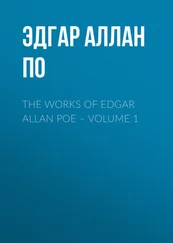Thomas Browne - The Works of Sir Thomas Browne, Volume 1
Здесь есть возможность читать онлайн «Thomas Browne - The Works of Sir Thomas Browne, Volume 1» — ознакомительный отрывок электронной книги совершенно бесплатно, а после прочтения отрывка купить полную версию. В некоторых случаях можно слушать аудио, скачать через торрент в формате fb2 и присутствует краткое содержание. ISBN: , Жанр: foreign_antique, foreign_prose, на английском языке. Описание произведения, (предисловие) а так же отзывы посетителей доступны на портале библиотеки ЛибКат.
- Название:The Works of Sir Thomas Browne, Volume 1
- Автор:
- Жанр:
- Год:неизвестен
- ISBN:http://www.gutenberg.org/ebooks/39960
- Рейтинг книги:5 / 5. Голосов: 1
-
Избранное:Добавить в избранное
- Отзывы:
-
Ваша оценка:
- 100
- 1
- 2
- 3
- 4
- 5
The Works of Sir Thomas Browne, Volume 1: краткое содержание, описание и аннотация
Предлагаем к чтению аннотацию, описание, краткое содержание или предисловие (зависит от того, что написал сам автор книги «The Works of Sir Thomas Browne, Volume 1»). Если вы не нашли необходимую информацию о книге — напишите в комментариях, мы постараемся отыскать её.
The Works of Sir Thomas Browne, Volume 1 — читать онлайн ознакомительный отрывок
Ниже представлен текст книги, разбитый по страницам. Система сохранения места последней прочитанной страницы, позволяет с удобством читать онлайн бесплатно книгу «The Works of Sir Thomas Browne, Volume 1», без необходимости каждый раз заново искать на чём Вы остановились. Поставьте закладку, и сможете в любой момент перейти на страницу, на которой закончили чтение.
Интервал:
Закладка:
Acer et indomitus quo spes quoq; ira vocasset
Ferre manum , etc.
To instance in some Particulars: with what an inconsiderable strength did he enterprize the conquest of Egypt , and afterwards went to attaque the forces of Scipio and Juba , which were ten times more than his own? after the Battle of Pharsalia , having sent his Army before into Asia , and crossing the Hellespont with one single Vessel, he there meets Lucius Cassius with ten men of War, he makes up to him, summons him to render, and he does it. In the famous and furious siege of Alexia , where he had 80,000 men to make defence against him, and an Army of one hundred and nine thousand Horse, and two hundred and forty thousand foot, all marching towards him, to raise his siege; yet for all that he would not quit the siege, but first fought with those without, and obtain'd a great Victory over them, and soon afterwards brought the besieged to his mercy.
Sect. 26. Pag. 41.
The Council of Constance condemns John Husse for an Heretick, the Stories of his own Party style him a Martyr. ] John Husse did agree with the Papists against us in the Point of Invocation of Saints, Prayers and Sacrifice for the Dead, free Will, Good Works, confession of Sins, seven Sacraments, etc. Gordon. Hunt. l. contr. 3. de Sacr. Euch. cap. 17 . Yet was he condemned for maintaining certain Articles said by that Council to be heretical and seditious, and was burnt for Heresie. Now as I will not say he was an Heretick, so can I not maintain that he was a Martyr, if it be but for this one Article, which in the 15. Sess. of that Council was objected against him, which he did acknowledge, but would not recal, i. e. Nullus est Dominus civilis, dum est in peccato mortali . If that Doctrine should be believed, we shall have little obedience to Civil Magistrates; and without that, how miserable is humane condition? That which begat compassion towards Husse in those of his own Party was, that he had a safe conduct from the Emperour Sigismund ; and therefore it was, say they, a violation of publick faith in the Council and Emperour in putting him to death.
That wise heathen Socrates that suffered on a fundamental point of Religion, the Unity of God. ] That Socrates suffered on this Point, divers Christian Writers do object to the Ethniques, as Justin Martyr , Apol. 2. Euseb. l. 5. de præparat. Evangelic. c. 14. Tertul. in Apolog. cap. 14. and Lactant. de justitia , cap. 15. whose words are these: Plato quidem multa de uno Deo locutus est, à quo ait constitutum esse mundum, sed nihil de Religione; somniaverat enim Deum, non cognoverat. Quod si justitiæ defensionem vel ipse vel quilibet alius implere voluisset, imprimis Deorum Religiones evertere debuit, quia contrariæ pietati. Quod quidem Socrates quia facere tentavit in carcerem conjectus est, ut jam tunc appareret quid esset futurum iis hominibus qui justitiam veram defendere Deoque singulari servire cœpissent .
I have often pitied the miserable Bishop that suffered in the cause of Antipodes. ] The suffering was, that he lost his Bishoprick for denying the Antipodes . Vid. Aventin. in Hist. Boio . Besides him, there were other Church-men of great note, that denyed Antipodes , as Lactantias , Augustin , and Bede .
Sect. 27. Pag. 43.
I hold that God can do all things: How he should work contradictions, I do not understand, yet dare not therefore deny. ] Who would not think the Author had taken this from Mr. Montaign , whose words are, Il m'a tousjours semble qu'a un homme Christien, cette sorte de parler est plein d'indiscretion et d'irreverence [Dieu ne se peut disdire,] [Dieu ne peut faire cecy ou cela]. Je ne trouve pas bon d'enfermer ainsi la puissance divine sous les loix de nostre parole. Et l'apparence qui s' offre à nous en ses propositions, il la faudroit representer plus reverement, et plus Religieusement. Liv. 2. des Ess. c. 12.
I cannot see why the Angel of God should question Esdras to recal the time past, if it were beyond his own power, or that God should pose mortality in that which he was not able to perform himself. ] Sir K. Digby in his Notes upon this place saith, There is no contradiction in this, because he saith it was but putting all things that had motion into the same state they were in at that moment, unto which time was to be reduced back, and from thence letting it travel on again by the same motions, etc. which God could do. But under favour, the contradiction remains, if this were done that he mentions; for Time depends not at all upon motion, but has a being altogether independent of it, and therefore the same revolution would not bring back the same time, for that was efflux'd before; as in the time of Joshua , when the Sun stood still, we cannot but conceive, though there were no motion of the Sun, but that there was an efflux of Time, otherwise, how could the Text have it, That there was not any day, before or after, that was so long as that? for the length of it must be understood in respect of the flux of time. The reasoning of Sir Kenelme is founded upon the opinion of Aristot . who will needs have it, that Time cannot be without mutation; he gives this for a reason, because when we have slept, and cannot perceive any mutation to have been, we do therefore use to connect the time of our sleeping and of our awaking together, and make but one of it: to which it may be answered, although some mutation be necessary, that we may mark the mix of time, it doth not therefore follow that the mutation is necessary to the flux it self.
Sect. 28. Pag. 43.
I excuse not Constantine from a fall off his Horse, or a mischief from his enemies, upon the wearing those nails, etc. ] Hac de re videatur P. Diac. hist. miscell.
Sect. 29. Pag. 44.
I wonder how the curiosity of wiser heads could pass that great and indisputable miracle, the cessation of Oracles. ] There are three opinions touching the manner how the predictions of these Oracles were perform'd: Some say by vapour, some by the intelligences, or influences, of the Heavens, and others say by the assistance of the Devils. Now the indisputable miracle the Author speaks of, is, that they ceas'd upon the coming of Christ; and it is generally so believed; and the Oracle of Delphos delivered to Augustus , mentioned by the Author in this Section, is brought to prove it, which is this:
Me puer Hebrœus divos Deus ipse gubernans
Cedere sede jubet, tristemq; redire sub orcum.
Aris ergo dehinc tacitus discedito nostris.
But yet it is so far from being true that their cessation was miraculous, that the truth is, there never were any predictions given by those Oracles at all.
That their cessation was not upon the coming of Christ, we have luculent testimony out of Tully , in his 2. lib. de Divinat. which he writ many years before Christ was born; who tells us that they were silent (and indeed he never thought they were otherwise) long before that time, insomuch that they were come into contempt: Cur isto modo jam oracula Delphis non eduntur, non modo nostra œtate, sed jamdiu jam ut nihil possit esse contemptius . So that for that of Delphos , which was the most famous of them all, we see we have no reason to impute the cessation of it to Christ; Why therefore should we do so for any of the rest?
For their predictions, let us consider the three several ways before mentioned, whereby they are supposed to operate; and from thence see whether it be probable that any such Oracles ever were.
Читать дальшеИнтервал:
Закладка:
Похожие книги на «The Works of Sir Thomas Browne, Volume 1»
Представляем Вашему вниманию похожие книги на «The Works of Sir Thomas Browne, Volume 1» списком для выбора. Мы отобрали схожую по названию и смыслу литературу в надежде предоставить читателям больше вариантов отыскать новые, интересные, ещё непрочитанные произведения.
Обсуждение, отзывы о книге «The Works of Sir Thomas Browne, Volume 1» и просто собственные мнения читателей. Оставьте ваши комментарии, напишите, что Вы думаете о произведении, его смысле или главных героях. Укажите что конкретно понравилось, а что нет, и почему Вы так считаете.












